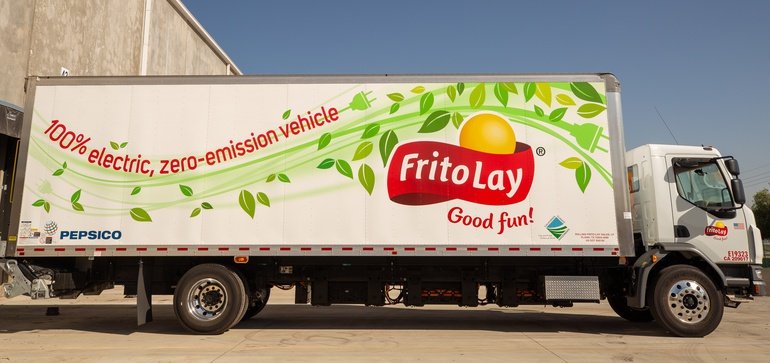PepsiCo to boost wearable technology use after Frito-Lay workers see injury reductions

Dive Brief:
- PepsiCo will ramp up wearable technology use in its beverage division after it enabled frontline employees at its Frito-Lay facilities to reduce lost work time by 67% YoY in the first two quarters of its deployment, according to a case study from Kinetic.
- Thousands of workers at 34 Frito-Lay manufacturing and distribution centers cut back on improper lifting and posture when using Kinetic’s Reflex wearable device, reducing strain and sprain injuries by 19% YoY, the study said. The belt-mounted device, which Frito-Lay first used in the summer of 2020, alerts employees who are improperly bending, twisting or reaching.
- PepsiCo’s beverage division plans to deploy thousands of Kinetic devices through a four-year program, per the study. “Wearables started off as a way for us to solve for the traditional ergonomic risks that we see, which drive some of our workers’ comp costs, but it has become an employee engagement exercise because they like and want to wear the device,” said Cormac Gilligan, vice president of global environment, health and safety at PepsiCo, in a statement.
Dive Insight:
Frito-Lay’s need to fill 5,000 positions across its U.S. manufacturing sites to meet heightened demand has underscored the importance of keeping frontline employees healthy and able to work.
Using wearables is one way to do that. Efforts to mitigate COVID-19 spread at facilities at the onset of the pandemic drove increased interest in wearable technology, like devices that notify workers when they’re too close together.
The Reflex wearable device recognizes improper moving and lifting techniques and alerts the user with a vibration. Data from the devices allowed management at Frito-Lay’s Kern Plant in California to determine what areas of the facility frequently featured improper movements. Bakery processing team employees were performing an average of 33 repetitive twists and bends daily, according to a Kinetic report.
“Workstation space limitations during ingredient changeovers were causing a significant increase in incorrect twists and bends,” Kinetic said. “Also, when taking weight samples, operators were continuously having to overreach towards the middle of the conveyor.”
The wearable device data led management to retrofit equipment and modify workspaces to reduce worker risk. They also focused their coaching for alternate lifting and turning techniques on bakery processing employees.
Employees prefer wearable devices as a coaching system rather than relying on a supervisor’s direction for proper lifting technique, the Kinetic study said. This is because it empowers them to talk with management about how a facility could be improved.
“After receiving an alert, employees stop and think about whether there is something they could do differently,” Gilligan said. “They then initiate conversations with us about why they have to adopt a high risk posture, and how we could redesign the workspace or the process. So you’ve got culture change happening at the same time as behavior change.”
Source: fooddive.com

